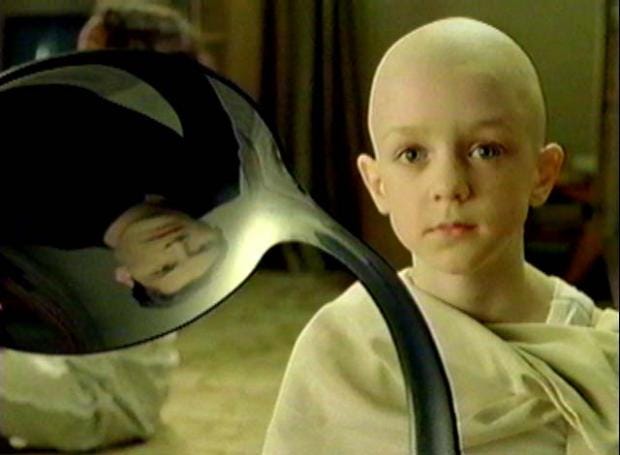When I was a kid, I used to make up funny scenarios with my younger brother. One of our jokes was an imaginary situation in which we had a time machine and went back to the time of ancient Greek philosophers. We’d arrive in our time machine, show off our technology in an attempt to impress them, and we’d then claim to be gods of Olympus, and expect to be worshipped. The punchline was that they’d respond with snark, ridicule and skepticism, and tell us to get the hell outa there.
From a young age, we understood a bit about philosophy. We understood that skepticism was at the core of it. We knew that a TV magician didn’t have any actual magical powers, and that there must have been a trick or illusion at play, even though we didn’t know what that was. We knew that we could not afford to be gullible in taking people’s word for claims that appeared to be backed only by razzle-dazzle bamboozling and mind-blowing mumbo-jumbo theatrics.
People use the term ‘philosophy’ in the different ways. We still don’t agree what it is. Its etymology translates to “love of wisdom,” which can mean anything. Granted, the term ‘philosophy’ can also mean a ‘viewpoint’ or ‘a way of seeing things” or an MO. For example, we say “my life philosophy is this…” or “according to our organization’s philosophy, we do things this way.”
But the act of philosophy, or ‘to philosophize’, is something else entirely. Is it to be logical and approach issues from reason, evidence and first causes? Or is it to explore and give the benefit of the doubt to all possibilities, even ones beyond logic?
From my perspective, philosophy is fundamentally about skepticism, cynicism and disbelief . Only from a naturally skeptical mindset can logic then be applied. If emotion is the antagonist of logic, then skepticism is what frees us from the shackles of overpowering emotions. We question our emotions, so that we don’t let them take over and subdue our logic. So, the logical approach is to question and challenge.
Philosophy is the default state of not blindly believing anything - not even your own senses - when examining or assessing apparent evidence that would draw you to believe something. I believe that the epitome of philosophy has been coined by the likes of René Descartes (the deceiving demon) and Plato (the allegory of the cave of shadows): Question everything, even your own senses. I’d go a step further than Plato and Descartes, and say this: Question even your own thought processes and your own sanity.
I am not saying “deny everything.” Instead, I am saying “be skeptical of everything, and don’t commit all your intellectual weight to it.” Yes, you can be skeptical of your sanity without doubting it to he point of existential insanity. Completely denying something is being certain it’s wrong. This is not what being skeptical of everything means.
Being certain that something is false is just as deluded as being certain that it is true. And there are extremely few things we can be certain about in this reality. One is simple mathematics (and even that assumes a leap of faith in your own sanity). Most other things we think we know are just sensory input - just like reading a “study” by useless academics trying to use deceptive statistics to conclude what their source of funding wanted them to conclude. If you can’t personally verify a claim, it’s all hearsay, and a huge leap of faith for the sake of convenience, or lack of options.
“But how can you survive if you are skeptical of everything? Don’t you need to trust something and someone? If you distrust everything, you’ll never do anything in life.”
Indeed. ‘Trust’ is the key word here. Every action we decide to take is based on blind trust in our ability to assess risk; it’s a leap of faith in ourselves, our senses, and in the quality of data we have at hand. We have to trust something, otherwise we won’t do anything. I have to trust that I won’t get stabbed during my walk in the park, otherwise, I won’t do anything in my life. Do I know I won’t get stabbed? No. Why do I still risk going there, resting my hopes on blind belief? Because I have no other choice. Risk is what defines life.
We see patterns in nature and we take risks according to an arbitrary and personal risk assessment based on those patterns. For example, you step into your car, and initiate a commute. You don’t know if the car will function or explode in your face like in the movies. You don’t know if it’ll take you there, and if you will survive the journey. But the data you have received on the matter so far, assuming your memory is correct, indicate that you’ve got a pretty good chance of making it. Same goes for eating food that someone else has prepared, which is every single bite we take since birth. We don’t generally die or get sick from food (usually), so we might as well eat it, even though there’s always a chance it’s bad or deliberately poisoned. But this doesn’t mean you are absolutely certain that every bite you take is fully safe, or clean or even real. You accept the risk, and take a lead of faith. Life is one huge leap of faith. But you understand it as such, instead of deluding yourself you absolutely know.
This reality may well be a simulation not unlike a computer program. We could be NPCs in a video game for someone’s entertainment or experiment. How would we know? The entity running this video game could also be in its own simulation delusion, and it would have no way of knowing either.
Philosophy is not about finding the answers. Philosophy is about coming up with the wildest of questions, and creating even wilder thought patters from that pondering. Philosophy is not an assertion of absolute truth. Philosophy is the opposite of resting on what we presume we know for the sake of convenience or peace of mind. Philosophy is hard, painful, costly.
Philosophy is the pursuit of questions, not answers. The pursuit of answers leads to dogmatism, one-sidedness, deluded self-assuredness, smugness, and self-righteous violence against those holding opposing views. If you believe you have all the absolute undeniable answers, then you will not tolerate anything else you deem inferior. You will feel justified in committing any atrocity against those who disagree with you, because you are convinced you have the one and only true answer. The Salem witch trials and the COVID ostracization of the “unvaccinated” are the same instances of deluded schizophrenic-level self-assuredness.
Philosophy tolerates because philosophy questions. It questions even one’s own beliefs. This may come at a cost of confidence, but at least it saves us from undeserved deluded arrogance.
I have my beliefs, but there’s always a chance I could be wrong, or there’s a possibility that my beliefs don’t apply to others the way they apply to me. I understand the difference of absolute knowledge and belief. Most of what we think we know is just faith. The more you realize that it is belief rather than knowledge, the more you travel into the realm of philosophy.
Philosophy is the opposite of scientism (not science). Science - pure science - is the pursuit of the right questions that may lead to the best approximation of answers. But science is never supposed to rest there: science is about making more questions to question the answers, again and again, forever questioning. Sounds a lot like philosophy, right? This is why I keep saying that science is a branch of philosophy. Scientism, on the other hand, is faith-based dogmatism, cult-like religious fanaticism, absolutist objectivism. Scientism is the absolutist fixated deluded belief in something. An example is the obsessive-fanatic-religious belief in “vaccines,” “the science” (corrupt academia), or “the state.”
On the other hand, subjectivism is as inflexible as objectivism. Subjectivism is manifest in two ways:
Everything is subjective.
The application of logic or principles is subjective according to convenience.
Neither manifestations of subjectivism are philosophical.
But hey, who am I to talk? I could be the one who’s wrong here, right? I’m open to different viewpoints. But they are not convincing to me as of yet, so I stick to my beliefs for now, until something better comes along. But I’m always open to and looking for something better. I question myself, and so I question all. What I can’t question is my involuntary tendency to dislike dogmatists, absolutists and moralists who choose not to change their minds, or to challenge their cherished beliefs, even when faced with reasonable counter-arguments that make more sense than their positions. The people who, despite logically understanding that they are wrong, they still choose to emotionally defend their position solely on the base of ego or convenience. But hey, Descartes talked about this: what if even our perception of logic is flawed? What if my understanding of logic is false, and theirs not as false?
Everything is faith-based. Even our understanding of objective logic requires faith in our own sanity. Question that too.
Question everything. Question what you think you know. Question every assertion I make in this post. Question even your understanding of these words. Keep questioning. It’s the only way to avoid the trap of erroneous, deluded and destructive self-assuredness.
Just so you know, every assertion I make is not a statement of fact, but rather, an invitation to discuss, explore, question.
Thank you for reading.
All of my content is free.
Follow, comment, share, subscribe for free… or not. It’s all the same to me.
My target audience is people who haven’t been born yet.













Philosophy is not about finding the answers. Philosophy is about coming up with the wildest of questions, and creating even wilder thought patters from that pondering.
This is a really good definition of philosophy 👏
https://youtu.be/Sa81GSFA_is